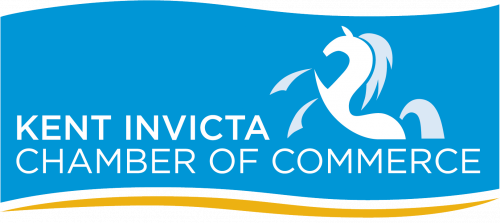Navigating Recession: The Strategic Imperative Of Process Improvement
Amidst the recent announcement that the UK economy has officially entered a recession, the imperative for businesses to adapt and innovate has never been more pressing. With GDP contracting by 0.3% between October and December, as reported by the Office for National Statistics (ONS), the economic landscape is undeniably challenging. However, amidst the gloom, there lies an opportunity for forward-thinking leaders to embrace Process Improvement initiatives as a means to weather the storm and emerge stronger on the other side.
In times of economic downturn, the knee-jerk reaction for many businesses is to tighten their belts, cut costs wherever possible and hunker down until the storm passes. I’ve been in this position myself, as a Process Improvement Lead being asked to stop all activity to “focus on the day job”. I won’t get into the negative implications of this or we could end up with a novel, but the irony here is that if process improvement is being done properly, it is the day job! Just look to brands such as Toyota, they have never called their continuous improvement culture “Lean”, it’s simply “just the way they do things.” Unfortunately, in reality, times like these often translate into shelving or even axing Process Improvement projects in an effort to conserve resources. However, such a reactionary approach is not only often flawed but also short-sighted.
While it may seem counterintuitive to invest time and resources into Process Improvement during a recession, the reality is that this is precisely when such initiatives become even more critical. The temptation to slash budgets and abandon projects in the name of immediate savings may provide some short-term relief, but it comes at the expense of long-term viability and competitiveness.
During times of economic downturn, the landscape shifts dramatically, requiring businesses to reassess their strategies and hone in on efficiency to navigate the turbulent waters successfully. It’s a test of business agility, demanding the ability to adapt swiftly and overcome obstacles. In this context, Process Improvement emerges as a crucial ally. With its focus on streamlining operations, eliminating waste and maximising value, Process Improvement offers a clear pathway to achieving resilience and sustainability in challenging times.
Imagine this: it’s the 75th minute of an FA Cup quarter-final match. Your team is trailing 2-1. Would you substitute your highest goal scorer for a defender? It’s a baffling move that often draws loud disapproval from fans in the stands. Just as in football, where strategy is crucial, businesses must make sound decisions, especially in tough times. Just as you wouldn’t bench your star striker when you need goals, businesses shouldn’t abandon effective strategies in adversity. Success depends on having the right players in the right positions and making strategic moves when needed. It’s about staying true to strengths, making informed decisions, and rallying behind the team for victory, against all odds.
However, back to the business world, the perception of Process Improvement as an optional expense rather than a strategic imperative is often rooted in a lack of knowledge. Many leaders may not fully grasp the transformative potential of Process Improvement, viewing it as an additional cost burden, a “nice to have” rather than a means to drive long-term success. Thus, there is a pressing need to educate and inform leaders about the significance of Process Improvement in times of economic uncertainty.
By reframing Process Improvement as an essential tool for enhancing operations and bolstering resilience, businesses can shift their mindset and approach towards it. Instead of seeing it as an extraneous expense, leaders should recognise Process Improvement as a strategic investment with the potential to yield substantial returns. This shift in perspective requires proactive efforts to disseminate knowledge and insights about the benefits and principles of Process Improvement.
Ultimately, empowering leaders with the understanding and awareness of Process Improvement’s value equips them to make informed decisions that prioritise efficiency and long-term viability. It’s not merely about cutting costs or weathering the storm but about positioning the business for sustained success and growth in the face of adversity. By embracing Process Improvement as a core tenet of their strategy, businesses can navigate economic downturns with confidence and emerge stronger on the other side.
By cutting back on Process Improvement initiatives, businesses risk falling behind competitors who continue to invest in innovation and efficiency. Furthermore, the problems and inefficiencies that Process Improvement aims to address don’t simply disappear during a recession. In fact, they may become even more pronounced as businesses face heightened pressure to do more with less.
Therefore, rather than succumbing to the temptation to abandon Process Improvement efforts, I ask businesses to view them as a strategic investment in their future resilience and success. By embracing Process Improvement during a recession, organisations can position themselves to emerge stronger on the other side, with leaner operations, reduced costs and a competitive edge in the marketplace.
One of the fundamental aspects of Process Improvement is its investment in people. Amidst economic uncertainty, empowering employees to contribute to efficiency gains can yield significant dividends. Engaged and motivated employees are invaluable assets, driving innovation and problem-solving within the organisation. Investing in their development through training and involvement in Process Improvement initiatives not only boosts morale but also enhances productivity and resilience.
Furthermore, Process Improvement initiatives yield both immediate benefits and long-term results. By identifying inefficiencies and implementing targeted solutions, businesses can swiftly reduce costs and enhance productivity. Whether it’s streamlining supply chains, optimising production processes, or improving customer service workflows, the impact of these initiatives can be tangible and far-reaching. Real-world statistics support this approach, with studies indicating that for every £1 invested in Process Improvement, businesses can expect returns of £4 to £6, according to research by the UK government’s Department for Business, Energy & Industrial Strategy.
Contrary to common misconceptions, embarking on a Process Improvement journey doesn’t necessarily require a substantial financial outlay either. It’s more about fostering a culture of continuous improvement and adopting Lean principles throughout the organisation. Leaders play a pivotal role in driving this cultural shift, championing the importance of efficiency and providing the necessary support and resources for teams to succeed. Effective leadership entails fostering open communication channels, encouraging experimentation, and rewarding innovation.
Personal experiences underscore the efficacy of Process Improvement in challenging economic climates. I’ve been an Operations Manager during periods of downturn in the market, we implemented Lean methodologies to optimise our production processes. Through collaborative problem-solving and employee involvement, we identified areas for improvement and implemented targeted solutions. These improvements were not large-scale changes that required significant investment, these were multiple small incremental improvements that came from the experience of the people who do the work every day. The results were remarkable, with a significant reduction in cycle times, enabling us to maintain competitiveness and weather the economic storm.
My conclusion, the UK’s entry into recession underscores the importance of embracing Process Improvement initiatives as a means to navigate uncertain economic terrain. By investing in people, leveraging Lean methodologies, and fostering a culture of continuous improvement, businesses can not only survive but thrive in challenging times. As leaders, the onus is on us to seize this opportunity, driving efficiency gains and positioning our organisations for long-term success.
If you’re interested in exploring how Process Improvement can benefit your business, I’m offering complimentary consultations to discuss your specific needs. I’m dedicated to supporting you in identifying opportunities and delivering tangible benefits. Together, we can establish a culture of continuous improvement that ensures sustainable growth, at a time where it really matters.
Visit www.eversolean.com to learn more about me and how I can support your business.


